
Nothing will end war unless the people themselves refuse to go to war. - Albert Einstein
Be the change that you want to see in the world. - Mohandas Gandhi
Wars are poor chisels for carving out peaceful tomorrows. - Martin Luther King, Jr.

Beginner's Guide to Peace - Losing the Way
“Either you’re going to go along with your mind and the truth, or you’re going to yield to fear and custom and conditioned reflexes.” - Buckminister Fuller
Cultural Maps
Culture is the collection of beliefs, traditions and technologies that enable a group of people to survive in a particular environment.
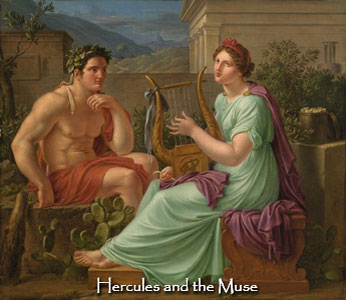
In addition to customs,
Additionally, as cultures evolve to create and embrace any number of artistic, musical, literary or theatrical traditions, they are able to incorporate an even greater spectrum of personalities. When done well,
Liberty Under Attack
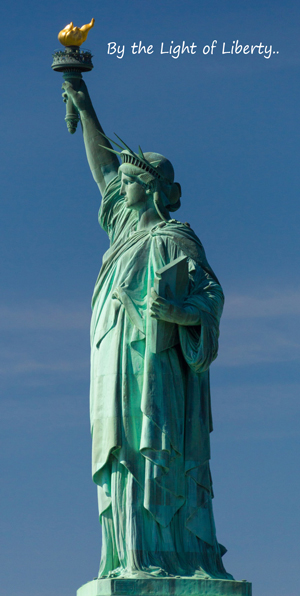
When we use the term
Attacks from Within
Under the protection of the first amendment of the US Constitution, there was an incredible explosion of religious activity in the United States throughout the 1800’s, particularly among Protestants. This led to the creation and spread of multiple new denominations, branches and offshoots. Not content with merely focusing on their own salvation, however, some members of these groups took it upon themselves to “save” everyone else as well. Finding they were unable to persuade some to their beliefs, these self-selected moralists
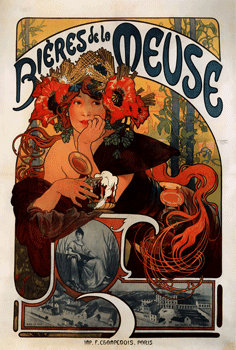
One outcome of this Protestant zeal to use the State to enforce morality was the institution, after a very long campaign, of the prohibition of alcohol. Starting in 1920, the sale and manufacture of alcoholic beverages was prohibited in the United States. Contrary to expectations, Prohibition did not end the consumption of alcohol in the US but merely drove it underground. Among the unintended consequences was
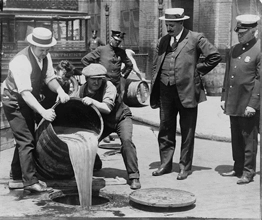
The Prohibition advocates of the late 19th century US were not above using nativist fears towards the new immigrants coming into the country to press their cause. The new immigrants were primarily people from southern and eastern Europe that spoke different languages. There were also predominantly Roman Catholics and were less inclined to oppose the consumption of alcohol. The moralists attempted to tie crime, immigration and alcohol consumption into a package in their push for prohibition. They also pushed for
Unintended Consequences
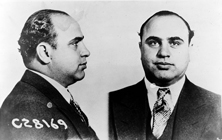
The ultimate outcome of Prohibition was not a decrease in crime but an upsurge as organized crime grew in power and
The prohibition of alcohol has a modern day parallel with the current
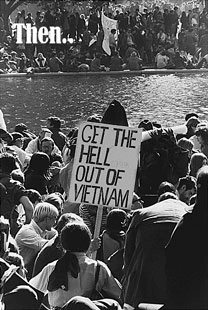
While the passage of the act served to effectively halt the medicinal use of cannabis in the US, the popularity of cannabis for recreational use increased through the 1950’s and 1960’s, becoming associated with counterculture groups such as the Beats in the 1950’s and “hippies” and

White House recordings have revealed that the ever paranoid Nixon saw cannabis as a Communist plot to encourage radical protesters, homosexuality and “immorality in general”[3] and hoped to use the commission’s report to go hard against those he saw as his enemies. To Nixon’s surprise, after a year of investigation, the Schafer Commission found no significant harmful effects to the use of cannabis and essentially recommended decriminalization. Furious, Nixon had the report buried and made sure that cannabis became permanently classified as a Schedule 1 drug insinuating that it was dangerous, highly addictive and of no medical use, further damaging the future of medical research on the plant. As with his illegal bombing of Laos and Cambodia,
Unintended Consequences Redux

Once again, unintended consequences prevailed with black marketers and organized crime creating more potent and concentrated varieties of cannabis with higher THC levels[5] or shifting to more easily smuggled but more addictive and potentially dangerous drugs such as cocaine and heroin. As with the government’s push for the introduction of methyl into industrial alcohol in the 1920’s, the US government’s financing of
Additionally, as the US government’s push for the war on drugs intensified throughout the 1980’s and 1990’s, under both Democratic and Republican administrations, the prison population steady increased. At its peak, in 2008,
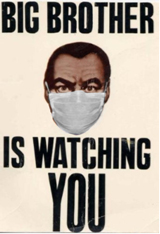
Vices Are Not Crimes
“Puritanism: The haunting fear that someone, somewhere, may be happy.” H.L Mencken
In the United States and other countries, moralists have attempted to use the aggressive power of the State to criminally punish behaviors that they disagree with. They have supported the loss of liberty and\or property for actions that in no way violate the
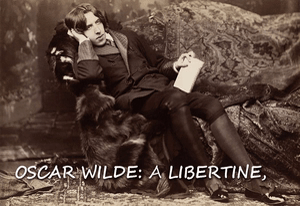
Laws forbidding homosexuality, the use of birth control, the free association of individuals of different ethnic backgrounds (racial segregation\Apartheid, anti-mixed marriage laws) and the consumption of intoxicating substances (Prohibition\the war on drugs) have ultimately had disastrous effects, both to personal liberty and ultimately to the health of the society as a whole.
One of the basic principles of libertarianism is that vices are not crimes. Actions that do not violate the
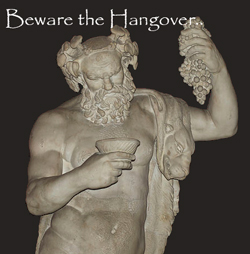
Liberty Does Not Mean "Anything Goes"
One final note on the topic of vice: the word “libertarian” is not a synonym for “libertine”. As previously mentioned, most libertarians and promoters of liberty understand that actions have consequences and accept responsibility for their own decisions. They also understand that culture, history and personal experience can offer guidance for individuals seeking to live both free and peaceful lives but that progress often requires pushing on boundaries and exploring new territory, a topic for discussion in an upcoming chapter called Going Off Road.

As different people have different personal goals, it is wrong for anyone, whether it be the State or any other institution, to dictate through the use of aggression and the threat of violence how someone should live. To not allow personal choice is to deny people the ability to act morally, making them little more then puppets or
The Deceptive Call of the Ring of Power
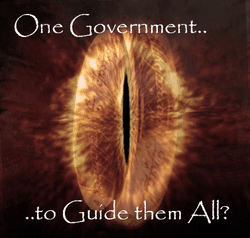
Those who believe they can control the power of the State are sadly deceived. The State is a cruel mistress. Those who wish to wield the
It seems the ultimate irony that governments often end up supporting vices that they previously criminalized, once they realize they can tax them. Gambling, prostitution and the sale of alcohol and cannabis have all been legalized by one or more government entities at some place in the world, and religious groups that once sought to use State power to do their bidding instead find their own values under attack.
Challenges from Without
Drawn by the promise of liberty and the wealth and comfort that even a moderately free market can provide, individuals the world over have been drawn to the United States for centuries. The people within the United States, in turn,
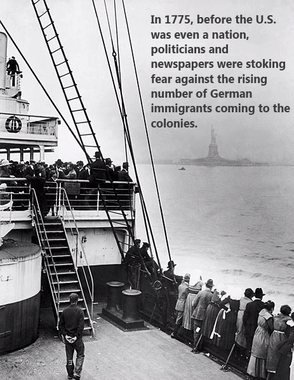
The introduction of new cultures does not always go smoothly, however. It is a strange paradox that, within nominally free countries such as the United States and a number of other western nations, newly arrived or even long existing but culturally isolated groups sometimes demand changes that
There is debate among some libertarians regarding the concept of open borders. Being advocates of liberty, support for the free movement and settlement of peoples would seem to be obvious. The problem, however, is that
Under the best of circumstance, the introduction of members of one culture into that of another can cause discomfort and misunderstandings, at least temporarily. Differences in values and traditions regarding appropriate social distance, dating rules, appropriate greetings and social niceties, food restrictions and attitudes regarding dress and nudity all have the potential of provoking conflict. Even such seemingly reasonable customs as standing in line are foreign in some cultures where scarcity and the acceptance of individual aggression are more common.
Democracy: Amplifying Social Conflicts
"Every election is a sort of advance auction sale of stolen goods.” H. L. Mencken
Under rule by the State, there is always a certain amount of conflict as governments inevitably favor certain groups at the expense of others. In representative democracies,

With regard to immigration policy, it is to the benefit of certain politicians to allow for and even promote the rapid inflow and approval of citizenship for new arrivals. By promising new constituents a package of benefits, they seek to sway the outcomes of elections. In democracies, where the desires of 51% can trump those of the other 49%, even small changes in the voter pools can shift election results.
Unlike the free market,
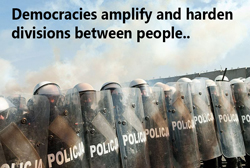
It is thus inevitable that elections and the operation of the State will lead to resentment and
Walls and Bridges
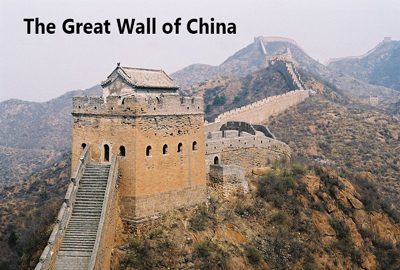
The
It is during tumultuous times like these that people build walls, both physical and psychological. Walls are constructed when people perceive that conditions have become so threatening that the high cost of their construction is justified. Walls are often a rational and defensive response to violence, or the threat of violence, during times of turmoil or

Walls, of course, can also be constructed as acts of aggression to keep people inprisoned, as in 1961 when the communist regime built the Berlin wall to prevent East Germans from fleeing to West Berlin to escape economic and political repression. To live behind a wall is obviously not the ideal. Walls isolate people living behind them from the benefits of interaction with the wider world. Of course, "..a wall is a hell of a lot better than a war", as Kennedy famously said of the Berlin wall, resisting pressure to take military action against a nuclear armed Soviet Union.
Even when things look their worst, though, there is always the possibility of progress. While the majority of people hunker down behind the walls of the castle, town or nation, there are always a few looking outward. Very often
Protecting the Things You Love
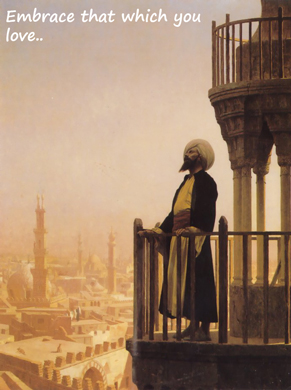
It is the ultimate irony: Moves to limit liberty, whether by longtime residents or new arrivals, have the effect of undermining the very thing (liberty) that allows them to express their discontent in the first place. New members of any culture should not expect their newly adopted culture to accept or embrace their beliefs without thought, discussion and debate. All of this can require considerable time. They should also be cautious not to transform their new society into the very thing they are fleeing from.
As for long term members,
----------------------------------------------------
Essentials
- Culture can provide valuable guidance for living but can become corrupted by both internal and external forces.
- Actions have consequences. Using the power of the State to enforce personal preferences can lead to destructive results.
- Vices are not crimes.
- Democracy often increases the intensity of social conflicts.
- Traders and curious travelers can help create connections and build bridges of understanding and cooperation between people of different cultures.
Further Explorations
Defending the Undefendable by Walter Block.
__________________________________
Notes
1. ^ Prohibition in the United States - Wikipedia.org
2. ^ Marihuana: A Signal of Misunderstanding - National Commission on Marihuana and Drug Abuse.
4. ^ Once secret Nixon tapes show why the U.S. outlawed pot - Originally posted on Alternet.org.
5. ^ THC content was increased at the expense of potentially beneficial cannabinoids such as cannabidiol(CBD)- https://www.projectcbd.org/schizophrenia
6. ^ United States Incarcaration Rate - Wikipedia.org
Picture Credits
^ Statue of Liberty: Liberty. Photograph by Petr Kratochvil.
^ Vietnam War Protest: Vietnam War protestors at the March on the Pentagon by Frank Wolfe, downloaded from Commons.Wikipedia.org.
^ The Great Wall: Photograph by Georgio. Downloaded from Commons.Wikipedia.org, some modifications made.